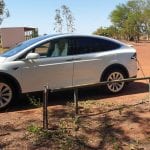Around The Web
Objets d'Art from Plastic Soup
Plastic Soup: An Atlas of Ocean Pollution by Michiel Roscam Abbing (26 Apr 2019, HB, £20.31, Island Press) illustrates plastic pollution
Continue reading...North American drilling boom threatens major blow to climate efforts – report
- More than half the world’s new pipelines in the US and Canada
- Pipelines ‘locking in huge emissions for 40 to 50 years at a time’
More than half of the world’s new oil and gas pipelines are located in North America, with a boom in US oil and gas drilling set to deliver a major blow to efforts to slow climate change, a new report has found.
Related: Millions more Americans breathing dirty air as planet warms, study finds
Continue reading...‘Death by a thousand cuts’: vast expanse of rainforest lost in 2018
Pristine forests are vital for climate and wildlife but trend of losses is rising, data shows
Millions of hectares of pristine tropical rainforest were destroyed in 2018, according to satellite analysis, with beef, chocolate and palm oil among the main causes.
The forests store huge amounts of carbon and are teeming with wildlife, making their protection critical to stopping runaway climate change and halting a sixth mass extinction. But deforestation is still on an upward trend, the researchers said. Although 2018 losses were lower than in 2016 and 2017, when dry conditions led to large fires, last year was the next worst since 2002, when such records began.
Continue reading...Deforestation: Tropical tree losses persist at high levels
CP Daily: Wednesday April 24, 2019
California defends decision to maintain post-2020 ETS caps as it confirms surplus volume
Oregon cap-and-trade scheme to be undersupplied from day one -analysts
Tesla driver clocks almost 1000km in Australian outback in one day
 Tesla Model X owner drives 908km in one day using AC chargers on mission to prove EVs can do Australia's vast distances.
Tesla Model X owner drives 908km in one day using AC chargers on mission to prove EVs can do Australia's vast distances.
The post Tesla driver clocks almost 1000km in Australian outback in one day appeared first on RenewEconomy.
Fact or fiction? We check Coalition's claims about Labor's climate change policy
After the government said the opposition’s emissions reduction policy would cost $26bn, should you believe it?
Short answer: no.
Continue reading...Tesla expects its battery storage market to grow 300 per cent
 Musk says Tesla battery storage business expected to grow 300% after being crimped by the focus on Model 3 production.
Musk says Tesla battery storage business expected to grow 300% after being crimped by the focus on Model 3 production.
The post Tesla expects its battery storage market to grow 300 per cent appeared first on RenewEconomy.
New US offset protocol aims to reduce costs for voluntary urban forestry
Pollutionwatch: air better in Extinction Rebellion areas
London roads were blocked, reducing buses and taxis’ flow
While Extinction Rebellion blocked roads in London, the capital was awash with particle pollution, causing the mayor to issue alerts on bus stops. But this poor air had nothing to do with the protests, quite the opposite. Analysis by King’s College London found that air pollution improved close to the protest locations. This was especially clear on Oxford Street, without the constant flow of buses and taxis, but was also seen at Aldwych close to Waterloo Bridge.
There was no sign of deteriorations on the surrounding roads, which might be partially explained by lighter traffic because of the Easter holidays. The pollution alerts were part of the all-too-familiar rhythm of spring, when exhaust from traffic, emissions from industry chimneys and ammonia from fertilised fields combines to form particle pollution that drifts over western Europe. Unusually, this covered all of the UK and prompted the Irish Environmental Protection Agency to issue warnings for the east of the country.
Continue reading...


